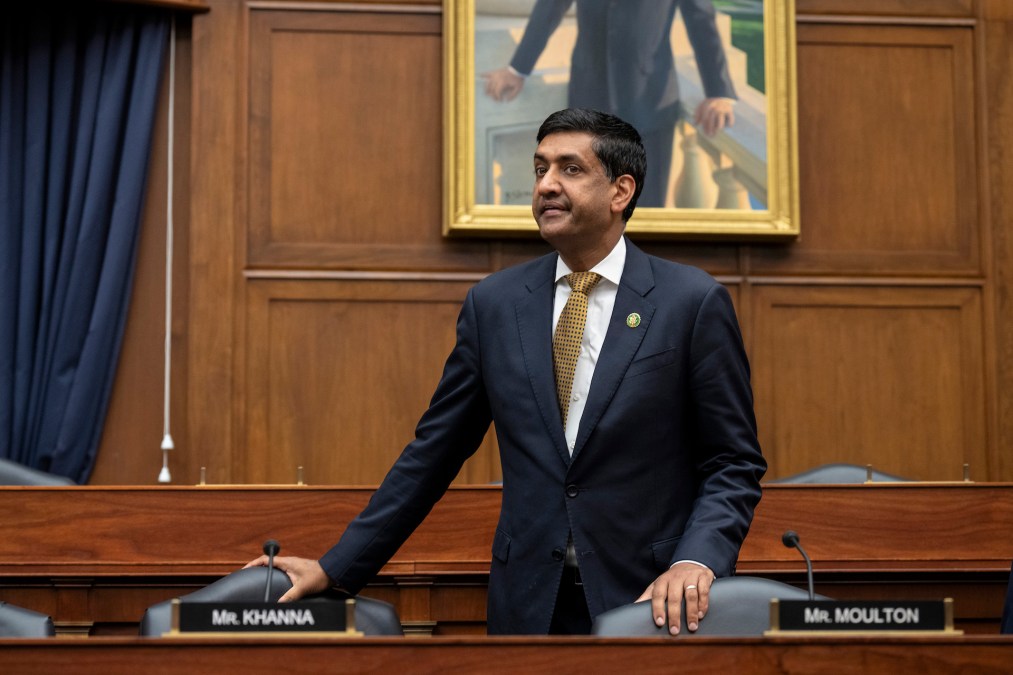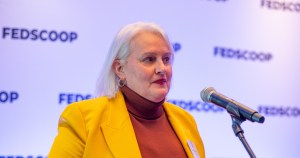Rep. Ro Khanna calls for accountability of federal leaders on digital services modernization

Rep. Ro Khanna, one of the top Democrats in Congress based out of California’s Silicon Valley, wants to bring federal tech leaders to the Hill to better hold their agencies accountable for critical improvements to government websites and services that millions of Americans use every day.
Khanna told FedScoop in an exclusive interview that he would like to see key technology leaders at the White House’s U.S. Digital Service, Office of Management and Budget and the General Services Administration testify on ongoing delays to improving government digital services and American citizens’ frustrating experiences with them.
The Biden administration has made it a key strategic priority to enhance citizen experience with the federal government, namely by improving the digital services and websites agencies deliver. Preceding this administration, Congress took action on the matter passing the 21st Century Integrated Digital Experience Act (IDEA Act) in 2018 setting requirements for federal agencies to modernize their public-facing websites and digital products. Khanna was the lead sponsor of that law.
However, FedScoop reported in August that the failure of senior leaders to prioritize digital experience projects — central to the Biden administration’s technology agenda — has caused severe delays to the implementation of the 21st Century Integrated Digital Experience Act.
“I would have them come in and testify,” Khanna told FedScoop during the interview. “I would look at having a metric of what is the progress, what’re the things we have implemented with the IDEA Act, what still needs to be implemented and what are the places for growth.”
“It is an appropriate role for Congress to continue to push,” Khanna said on holding federal agency leaders accountable for key digital modernization efforts, adding that he would “continue to support holding them accountable.”
FedScoop previously reported in August that four senior government officials familiar with the matter placed responsibility for the lack of traction in the Biden administration’s digital modernization efforts squarely on top government leaders like OMB Deputy Director for Management Jason Miller, USDS Administrator Mina Hsiang, and GSA Administrator Robin Carnahan.
Since then, OMB delivered new guidance promoting the principles of the 21st Century IDEA and arming agencies to take action to improve their digital services and websites in line with the law.
Khanna, who represents a significant portion of Silicon Valley in the San Francisco Bay Area, said he regularly hears from constituents and those in the tech industry that there needs to be significant improvements to government websites.
“I think it’s just a sense of frustration that constituents express that why can’t the government deliver better and get it delivered more efficiently? Why is it that government websites are such a mess? Why is it that I feel like I’m 20 years back when I visit a government website,” Khanna said.
“We hear it very often in multiple town halls and calls to the office,” Khanna added. “That’s a stark contrast to the elegant designs of private sector companies in the tech space. So what we’re saying is take the best practices of AI and design” and inject them into government.
In conjunction with the IDEA Act, Khanna wants to take government digital modernization one step further with his recently introduced Government Service Delivery Improvement Act. That bill calls for increased accountability and coordination across federal agencies when it comes to how Americans interact with government technology, particularly through the use of AI and improved design.
Khanna said the Government Services Delivery Improvement Act is “designed to prod the agencies to go further” than the IDEA Act.
When asked what government websites and digital services the administration should focus limited resources on when it comes to IDEA Act implementation and customer experience enhancement efforts, Khanna pointed to the most widely used websites.
“I would focus on improving the consumer-facing websites like the Social Security Administration, the IRS, [U.S. Citizenship and Immigration Services], places that people interact most often with,” Khanna said.






